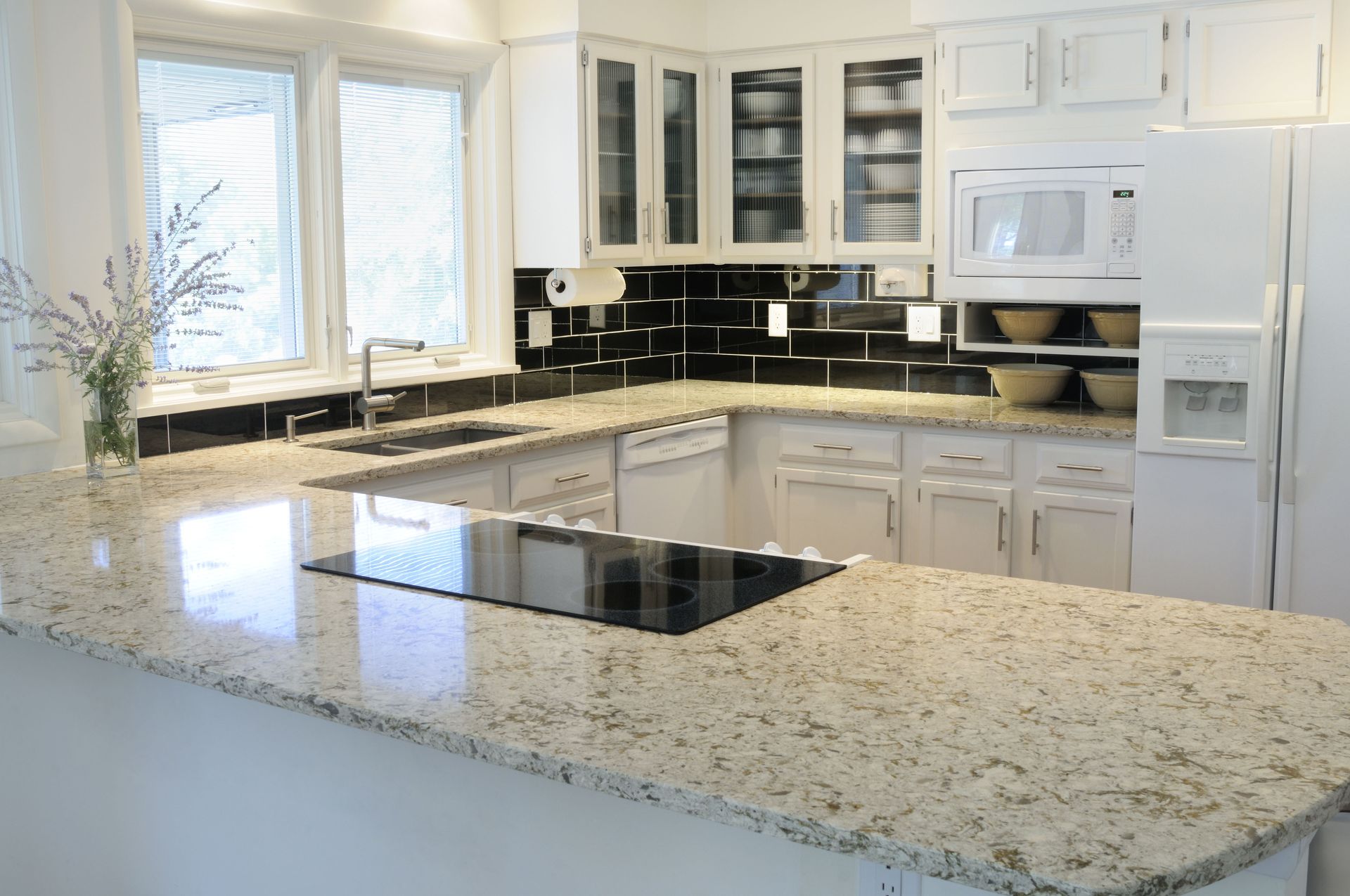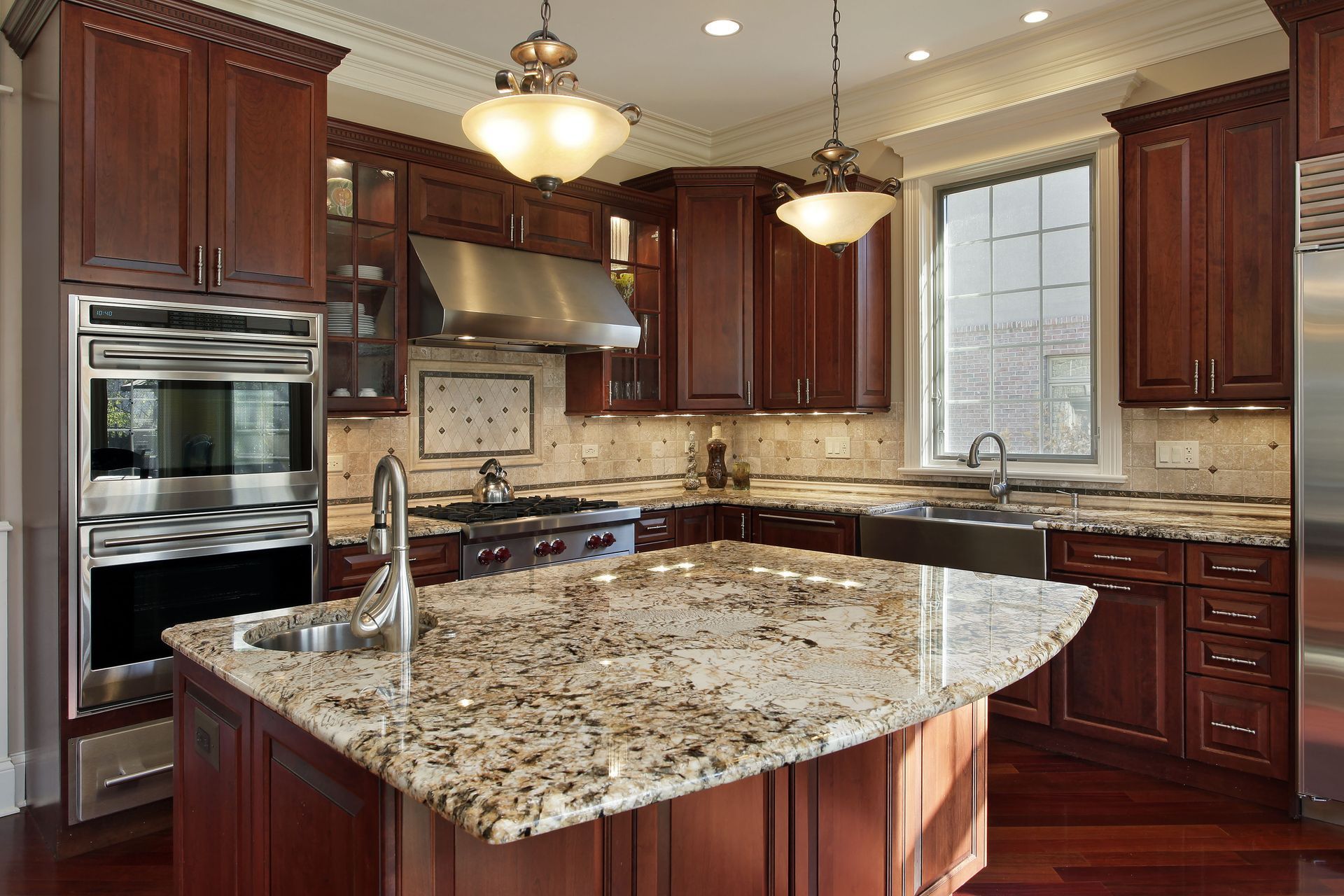October 31, 2025
Choosing the right stone countertop for your kitchen is a significant decision that impacts both the aesthetics and functionality of your space. This article will guide you through the process of selecting the perfect stone countertop that aligns with your kitchen needs and style preferences. By understanding your needs, evaluating material qualities, considering costs, and planning for installation, you can make an informed decision that enhances your kitchen's charm and usability. Explore various stone types and their unique characteristics to find the best fit for your lifestyle. Delve into design choices and installation processes that add value to your investment.
Understanding Your Needs
Understanding your kitchen usage is the first step in choosing the right stone countertop. Consider how frequently you use your kitchen and the type of cooking you do—whether it's light meal prep or intensive cooking sessions. A busy kitchen may benefit from a more durable, heat-resistant countertop, while a less-used space might prioritize aesthetic qualities. Assess specific needs, such as whether you need extra space for cutting, prepping, or serving food. Your kitchen's functionality will largely determine the kind of stone that best supports your daily activities.
Your countertop's durability is critical to its longevity and utility. If it's subjected to heavy use, consider stones known for their resilience, like granite, which is a stone formed from cooled magma, offering natural strength. Evaluate what kind of wear and tear your countertop will face, including potential for scratches, heat exposure, and heavy-weight impacts. The proper choice in a durable stone can prevent premature damage, maintaining your kitchen's appearance over time. Factor in family needs; households with children may favor a sturdier surface that withstands everyday challenges.
Family needs and habits play a pivotal role in selecting a stone countertop. Households with young children or active kitchens might prioritize stain-resistant surfaces like quartz, which demand less maintenance. Evaluate how often family members assist in meal preparations or utilize the space beyond cooking, such as homework or family gatherings. Consider if you prefer a countertop that accommodates various activities or one dedicated solely to culinary tasks. Balance your needs with each stone's features to ensure seamless integration with your family's lifestyle and habits.
Setting a realistic budget is crucial when choosing stone countertops. Costs can vary significantly among stone types and are influenced by factors such as rarity, sourcing, and slab size. Consider your financial priorities; some may find value in a luxurious stone like marble, while others seek cost-effective options like granite, which offers a balance between quality and cost. Evaluate installation costs as part of your overall budget, including potential charges for customization. Proper budgeting ensures a smooth process from selection to installation without unforeseen financial strain.
Aesthetic preferences are key to creating a kitchen that reflects your personal style and complements your home's design. Stone countertops come in a myriad of hues, patterns, and textures, allowing you to choose one that aligns with your vision. Whether you prefer the elegant veining of marble or the understated simplicity of soapstone, there's a stone to suit every taste. Consider how the countertop will harmonize with existing elements like cabinetry, flooring, and appliances. Ideal aesthetic choices can enhance your kitchen's overall appeal and contribute to a cohesive interior design.
Considering Types of Stone Countertops
Granite is a popular choice for its timeless appeal and robust properties. As a natural stone formed from cooled magma deep within the earth, granite offers a unique blend of beauty and resilience. Available in numerous colors and patterns, each granite slab presents distinct veining and flecking, adding character to any kitchen. Its toughness makes it resistant to scratches and heat, ideal for busy kitchens where longevity is valued. According to HomeGuide, granite countertops last over 100 years when installed and maintained correctly. However, granite requires regular sealing to prevent staining, ensuring its beauty remains unmarred over time.
Marble countertops are synonymous with luxury, renowned for their exquisite veining and classic elegance. Known for its softer composition than granite, marble is susceptible to scratching and requires careful maintenance to prevent etching from acidic substances. Despite these concerns, its natural beauty makes marble a sought-after choice for those seeking to add sophistication to their kitchen. Regular sealing helps mitigate its vulnerability to stains, preserving its aesthetic charm. Marble's cool temperature is particularly favored for baking and pastry preparation.
Quartz countertops provide a durable, versatile, and low-maintenance option for modern kitchens. Engineered from natural quartz crystals bound with resin, these countertops offer a non-porous surface that resists stains and bacterial growth. Available in a wide variety of colors and patterns, quartz can mimic natural stones or present seamless, uniform designs. Quartz's resilience to chipping and cracking makes it ideal for high-traffic kitchens where durability is key. Its consistent texture ensures a polished look that fits contemporary design preferences.
Soapstone is valued for its smooth, matte finish and charming character, offering a rustic appeal to kitchen designs. Composed primarily of talc, soapstone boasts heat resistance, making it perfect for areas close to stoves and ovens. While softer than other stone options, it can scratch, but these marks can be easily sanded out, allowing for simple maintenance. Soapstone's unique ability to darken over time develops a patina that many homeowners find appealing. It's also non-porous, requiring no sealing, and naturally resistant to bacteria and stains.
Comparing Material Qualities
Heat resistance is a critical factor when selecting a kitchen countertop material. Natural stones like granite and soapstone excel in enduring high temperatures, minimizing the risk of damage from hot pots and pans. Though quartz is engineered for strength, direct exposure to excessive heat should be avoided to prevent potential discoloration. Marble's heat tolerance is moderate, but excessive heat can lead to damage over time. Understanding each stone's limitations ensures you select a countertop that withstands typical kitchen environments.
Scratch and chip resilience are vital considerations, particularly for busy kitchens. Granite's dense composition makes it resistant to most kitchen wear, while quartz's engineered surface offers similar durability. Marble and soapstone, being softer stones, are more prone to scratches and chips, necessitating cautious use and regular maintenance. Investing in cutting boards and protective measures can extend the lifespan of these softer surfaces. The ability to withstand daily abuse ensures your countertop remains pristine through years of use.
Understanding maintenance requirements is essential in selecting a countertop that fits your lifestyle. Quartz surfaces, engineered for durability, require minimal maintenance, needing only regular cleaning to stay pristine. Granite and marble demand periodic sealing to maintain their resistance to staining and endow them with long-lasting elegance. Soapstone's maintenance revolves around occasional applications of mineral oil to enhance its natural darkening process. Acknowledging these distinct requirements can guide you in choosing a stone that aligns with your care preferences.
The lifespan and longevity of a
stone countertop can significantly contribute to its overall value. Granite and quartz shine in this aspect, with their durable compositions often lasting for decades with proper upkeep. Marble, while elegant, may show signs of wear more quickly without careful maintenance. Soapstone's patina process contributes to its lasting charm, albeit its softer nature invites more frequent touch-ups. Choosing a stone that balances beauty and longevity ensures your investment stands the test of time. For more information about stone countertops, contact us at Granite Huggers today.


